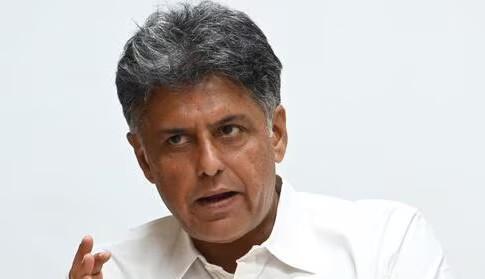
Against Constitution: Tewari on bills to remove jailed PM, CMs
The Indian government recently presented three bills in Parliament to enable the removal of Prime Ministers, Chief Ministers, and Ministers facing serious criminal charges. The move has sparked controversy, with Congress MP Manish Tewari strongly opposing the bills, terming them “against the basic structure of the Constitution.” In this blog post, we will delve into the context and implications of these bills, and explore Tewari’s concerns in greater detail.
The three bills, namely the Prime Minister’s (Appointment and Re-appointment) Amends Bill, 2023, the Chief Ministers (Appointment and Re-appointment) Amends Bill, 2023, and the Ministers (Appointment and Re-appointment) Amends Bill, 2023, seek to amend the existing laws governing the appointment and removal of these high-ranking officials. According to the proposed legislation, a Prime Minister, Chief Minister, or Minister can be removed from office if they are facing serious criminal charges, including those related to corruption, violence, and other heinous crimes.
However, Congress MP Manish Tewari has raised strong objections to these bills, arguing that they are unconstitutional and violate the basic principles of the Indian Constitution. Speaking in the Lok Sabha, Tewari said, “These bills are against the basic structure of the Constitution. Indian Constitution says that one is innocent until proven guilty. You cannot start with the assumption that a person is guilty until proven innocent.” He also highlighted the potential for misuse of state instrumentalities under these bills, which he believes would be enormous.
Tewari’s concerns are not entirely unfounded. The proposed bills do appear to depart from the principle of innocence until proven guilty, which is enshrined in Article 21 of the Indian Constitution. By allowing the removal of a Prime Minister, Chief Minister, or Minister from office based on mere allegations, these bills could potentially create a culture of fear and intimidation, where individuals are presumed guilty until proven innocent. This could also lead to a politicized use of legal proceedings, where the government uses its power to target its political opponents.
Another concern raised by Tewari is the potential for abuse of power by the government under these bills. With the ability to remove a Prime Minister, Chief Minister, or Minister from office based on mere allegations, the government would have immense power to dictate the course of political events in the country. This could lead to a concentration of power in the hands of the ruling party, and potentially undermine the very foundations of democracy.
Furthermore, Tewari has also highlighted the potential for corruption and misuse of state instrumentalities under these bills. With the government able to remove a Prime Minister, Chief Minister, or Minister from office based on mere allegations, there is a risk that political opponents may be targeted using trumped-up charges. This could lead to a culture of political corruption, where individuals use their power to silence their opponents and maintain their position in power.
The government, on the other hand, has defended the bills, arguing that they are necessary to prevent corruption and ensure good governance. According to Union Minister Amit Shah, who presented the bills in Parliament, the proposed legislation seeks to “introduce a sense of accountability and transparency in the political system.” However, critics argue that the bills are largely symbolic, and do not address the root causes of corruption and political rot in the country.
In conclusion, the proposed bills to remove Prime Ministers, Chief Ministers, and Ministers facing serious criminal charges have raised several concerns, including the potential for political abuse of power, corruption, and violation of the basic structure of the Constitution. While the government may argue that the bills are necessary to prevent corruption and ensure good governance, critics like Manish Tewari strongly oppose these bills, citing their unconstitutional and potentially harmful implications.
As the debate around these bills continues, it is crucial that we as citizens remain vigilant and hold our elected representatives accountable for their actions. We must also ensure that our Constitution remains a beacon of hope and justice, rather than a tool for political manipulation and abuse.






